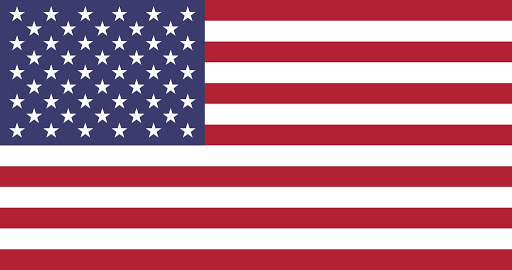US elections and global leadership
On Tuesday, November 3, 2020, the United States will hold its elections to decide who rules over the affairs of the country in the next four years. The major ballot is the election into the office of the President of the United States. The top contenders are President Donald Trump of the Republican Party and […]

On Tuesday, November 3, 2020, the United States will hold its elections to decide who rules over the affairs of the country in the next four years. The major ballot is the election into the office of the President of the United States. The top contenders are President Donald Trump of the Republican Party and former Vice President Joe Biden of the Democratic Party.
There are also various third party and independent candidates seeking the presidency, including Jo Jorgensen of Libertarian Party, Howie Hawkins of Green Party and Kanye West who is running as an independent party candidate.
In addition, all the 435 seats in the United States House of Representatives, 35 of the 100 seats in the Senate, 13 State and territorial governorships and other local elections will also be contested.
In the House of Representatives, Democrats are campaigning to hold and improve on their 232 of the 435 seats-majority, which they won in the 2018-midterm elections. The Republicans, who control the Senate since the 2014 elections, are working to maintain or improve on their 53 of the 100 seats.
Furthermore, six non-voting Congregational delegates from the District of Columbia and the permanently inhabited US territories will also be elected. The elections that will also hold in 86 of the 99 State legislative chambers and other State executive and judicial positions are important as their outcome will have a major impact on the redistricting cycle that will take place following the 2020 US Census.
Various referendums, tribal elections, and local elections, including numerous mayoral races, will also take place in 2020.
But the attention of the world is really on the presidential election, with incumbent Trump fighting the political race of his life as opinion polls show him trailing his Democratic challenger, Biden. While the final votes on who would lead the US in the next four years lies with the Americans, it is clear that the Trump presidency has not been the best for blacks, especially Africans.
Trump’s ‘America First’ policy has also caused many disruptions for majority of the world’s citizens as he has wrecked critical multilateral agreements. America has in the last three years withdrawn from the Paris Agreement on the United Nations Framework Convention on Climate Change dealing with greenhouse gas emissions mitigation, adaptation and finance, signed in 2016 of the World Health Organisation (WHO). In May 2018, the US withdrew from the Joint Comprehensive Plan of Action (JCPOA), also known as the Iran Nuclear Deal.
Internally, the American president has worsened race relations and showed soft spot for xenophobic allies, refusing to condemn White supremacist groups.
Yet, Trump’s penchant for hatred of foreign wars means that America, uncharacteristically, has not been in any new war under his tenure. Rather, he has withdrawn US troops and stopped funding allies in the Syrian war.
As the election comes next week, the rhetoric should assure the enforcement of voting rights and the protection of people’s right to peaceful assembly. The tone of the election is unlike what used to be for the leader of the world’s democracy as there is a good chance that it may be greeted with demonstrations or drawn disputes.
So, there should be no use of brutal tactics that could inflame passions by law enforcement agents on those who would exercise their right to peaceful protest and free expression.
The world is watching. The US should keep to its international legal obligations of keeping the public safe from violent extremist groups while safeguarding the rights to vote and peaceful assembly.
Though one election cycle does not solve all issues, it is expected that the November 3 election would begin to resolve the obvious deep crisis of confidence that is affecting U.S. ability to sustain its traditional global leadership role as the true scale of pre-existing weaknesses and fault lines is becoming apparent.
